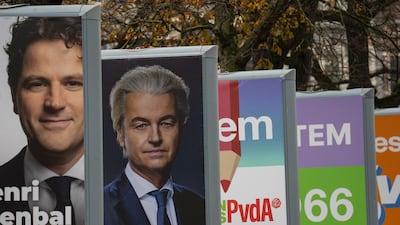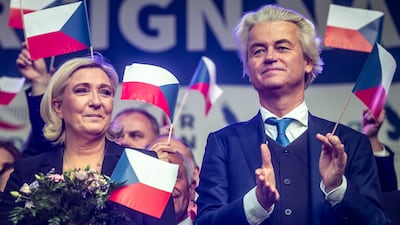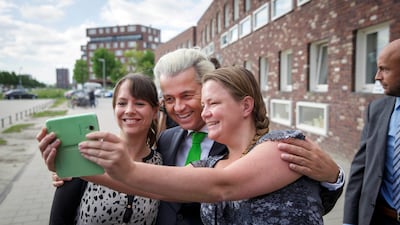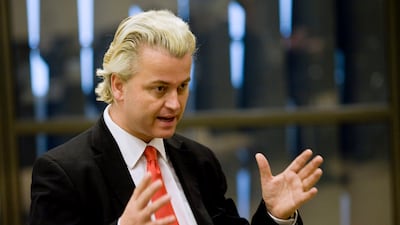Geert Wilders, the far-right leader of the Netherlands, has temporarily abandoned his prime ministerial ambitions after his attempts to form a ruling coalition hit a dead end.
Mr Wilders, a staunch critic of Islam, led his Freedom Party (PVV) to an upset election win in November but some potential allies baulked at serving in a cabinet led by him.
After prolonged talks, Mr Wilders said he was willing to cede leadership to support a right-wing cabinet that tackles his priority issues of asylum and immigration.
However, he said it was "unfair, undemocratic and constitutionally incorrect" that he had to sacrifice his hopes of becoming prime minister.
"I can only become prime minister if all parties in the coalition support it. That was not the case," Mr Wilders said. "The love for my country and voters is bigger and more important than my own position."
The way out of limbo remains uncertain, with an official leading the coalition talks due to report back to the Dutch Parliament on Thursday.
One possibility is an "extra-parliamentary cabinet" that could bring in technocrats and rest on a loose coalition agreement.
Parties including the PVV, the centre-right VVD of departing Prime Minister Mark Rutte and the upstart NSC led by anti-corruption champion Pieter Omtzigt, have struggled for months to agree on a way forward.
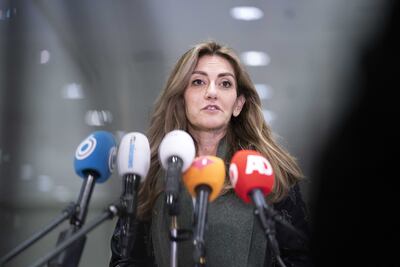
The PVV won 37 out of 150 seats in the fractured political landscape in the Netherlands, handing Mr Wilders the biggest victory of his long career.
Mr Wilders campaigned for cutting migration, halting military aid to Ukraine and a Dutch exit from the European Union, or 'Nexit'.
He is also known for strident anti-Muslim views and calling for bans on mosques and the Quran, although he had said he was willing to put his more extreme demands "in the fridge". He has positioned himself as a staunch ally of Israel in its war in Gaza.
The PVV's demands proved too much for the NSC and Mr Omtzigt, who walked out of the talks in February saying the gaps between the two parties were "too big".
Mr Rutte, who remains in post in a caretaker role, is considered a leading contender to become the next secretary general of Nato. His successor as party leader, former Turkish refugee Dilan Yesilgoz-Zegerius, has signalled she could back a technocratic cabinet.
Support for the PVV has increased post-election, surveys suggest, as voters voice frustration at the slow pace of talks.
Mr Wilders said he will become prime minister "one day, with the support of even more Dutch people".
"If not tomorrow, then the day after tomorrow."


